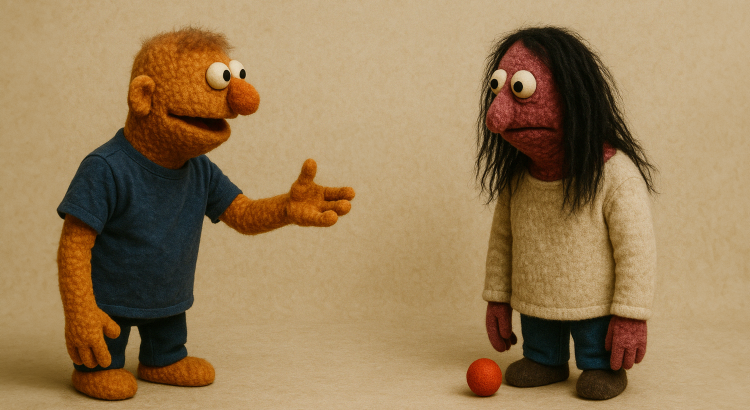In relationships and close friendships, there’s an unwritten contract.
It doesn’t matter who starts, but we take turns:
I invest in you. Then you invest in me. Back and forth.
1 – If you call me and I don’t answer, I owe you a call.
2 – If I ask you how you are, you owe me not just an answer about you but a “… and how are you?”
3 – If you send me a gift, I send you one. (Or I do something else of equal effort.)
4 – If I invite you out this time, you invite me out next time. If I invite you out and you decline, you owe me a counteroffer.
5 – If you help me achieve a goal, I’ll help you achieve yours.*
We all screw this up. But can we at least agree this is the deal?
Or should we passively wait for a great friendship to accidentally happen to us?
The even better version: when each person escalates their intentional investment to create one.
(This doesn’t necessarily apply to acquaintances, or lesser friendships, and there’s a gray area there. Sometimes one person wants to turn an acquaintance into a closer friend, and the other doesn’t. That’s a risk we take. We’ve got to take the hint and handle it with grace.)
But mutual investment (or turn-taking) is what I expect, especially in a romantic relationship.
Here’s a fun filter…
Alex Hormozi defines love for something as “what I’m willing to give up to keep it.” (Example: What would you give up to keep your dog? That’s a measure of your love. If you’d give up ZERO, there’s your answer.)†
Cal Newport says meaningful social connections require “non-trivial sacrifice of time and energy.” In an era where we think making Meta billions of dollars by forwarding reels is “friendship” — I agree.
If you’re in a relationship with someone who gives up little, invests little, doesn’t prioritize you, lets you do the hard work of initiating, and generally doesn’t match your interest and actions — it’s a bad sign.
It can also make you wonder: why did they want a relationship in the first place?
I’m not sure why reciprocity has become an alien concept.
If we’re allegedly close friends and I do this to you, please call me on it.
More crap to read:
The Games People Play: The Basic Book of Transactional Analysis by Eric Berne
* Sounds like manners from a forgotten century.
† I used a similar method for ranking my favorite films of all time. I took pairs of films and asked, “Which of these would I rather not give up?” My #1 turned out to be The Big Lebowski.

This all seems very reasonable. The variables and distances involved in modern interpersonal relationships complicate these dynamics, but intent is certainly still such a readable factor. It’s like body language in ways. I hope that makes sense.
I would not have picked The Big Lebowski as your top choice, at least not obviously. But it is so well done, so not a surprise. It’s another of many movies that I’ve seen repeatedly, often when I’m sick. So maybe it’s a comfort movie. Ha.
I get your point that it’s like “body language.” I think it can also become more visible over a period of time. The little things add up. The pattern emerges.
Pattern recognition is one of my specialties.